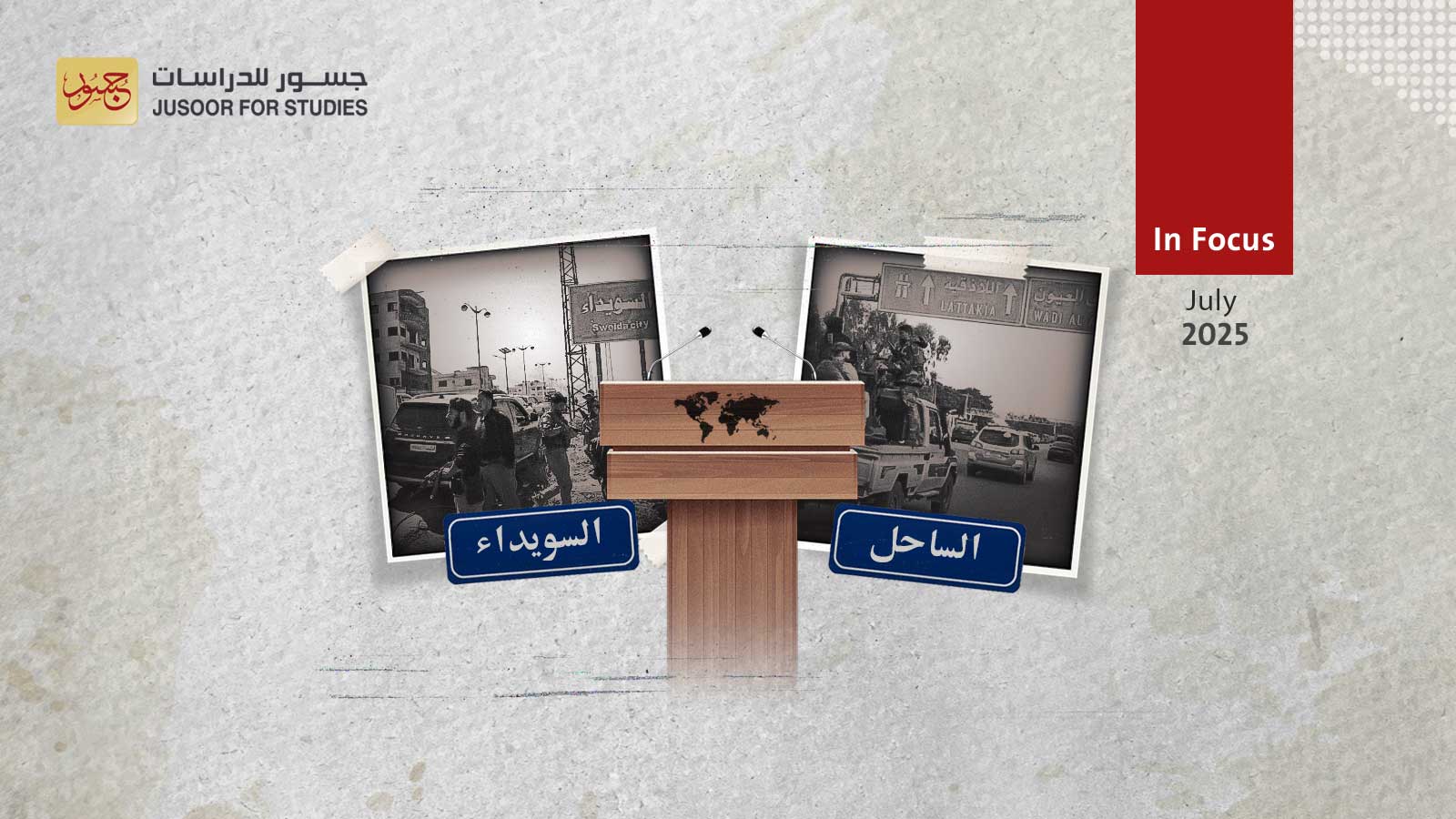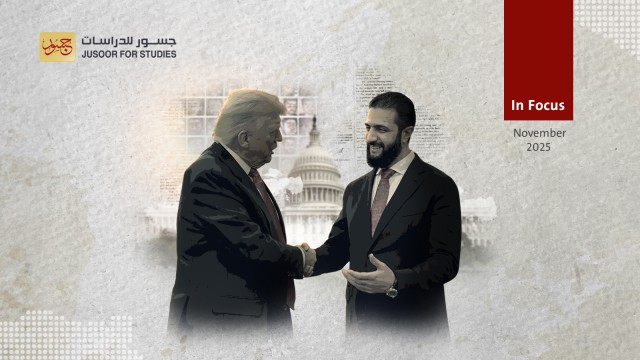Contrasting Responses to Killings on the Coast and in Suwayda
A tense calm is taking hold in the southern Syrian province of Suwayda after days of deadly violence. Yet as the dust settles, it is clear that world powers’ response differed markedly from its actions in the wake of the killings in Syria’s coastal region in March. Official statements on Suwayda were far more muted than those which followed the killings on the coast; nor has the United Nations Security Council convened an emergency session on the matter.
When killings broke out in the coastal region on March 6, world powers rushed to condemn it, starting with Russia and Israel on March 7 and followed by the U.S., the European Union, Germany, and Britain on March 9. These statements ranged from holding all Syrian parties responsible to condemning the Syrian government alone.
The Israeli Defense Minister said that “Abu Mohammed al-Jolani’s (Syrian President Ahmed al-Sharaa)’s forces are carrying out massacres against Alawites in Syria,” while U.S. Secretary of State Marco Rubio said his country “condemns the radical Islamist terrorists, including foreign jihadis, that murdered people in western Syria in recent days,” adding that: “The United States stands with Syria’s religious and ethnic minorities, including its Christian, Druze, Alawite, and Kurdish communities.”
These statements were followed by a joint call by Russia and the U.S., joined by European countries, for closed consultations at the Security Council, which heard a briefing from the world body’s Special Envoy to Syria, Geir Pedersen, on March 10. This resulted in a Security Council presidential statement on March 14 condemning the events, without assigning blame.
There are many explanations for the different international responses to the events in Suwayda, which may become clearer if the calm continues in light of a statement by the Druze spiritual leadership. These motivations include:
• The legitimacy and widespread international recognition gained by the Syrian government since March. Damascus has since restored diplomatic relations with many countries that had been severed their ties with the former regime, most international sanctions have been lifted, and the country has regained its membership of various international organizations, such as the Union for the Mediterranean.
• The restructuring of the new Syrian government since the events in the coastal region, which has transformed it from a predominantly single-party government, composed mainly of figures affiliated with Hay’at Tahrir al-Sham (HTS), into a more representative administration including several ministers from Syrian minorities.
• The restructuring of Syrian state institutions, particularly the Ministries of Defense and the Interior, and the issuing of the Constitutional Declaration, which provides a legal basis for government decisions.
• The fact that the Syrian government, with all its military, security, and civilian institutions, bore full responsibility for the measures taken to restore security and control the situation in Suwayda, and committed to preventing any non-government armed group or foreign fighter from taking part in the operation. This was partly in response to charges leveled against the government over the violence in Latakia, Tartous, Hama and Homs. The tight discipline of government forces, under the directives of the Ministries of Defense and the Interior, significantly contributed to preventing a repeat of such violations.
• The absence of attacks on civilians and civilian property, or of sectarian-based reprisals, after accusations of similar actions in the coastal region, where government forces targeted illegal armed factions.
• The international media coverage accompanying the entry of government forces, which broadcast live military operations, refuting any accusations of violations against civilians.
Thus, the violence on the coast differs markedly from that which took place in Suwayda. Despite similar demands for international protection, there is a significant difference in the motivations behind such demands. In the case of the first, this request was made by remnants of the regime, who had gathered on the coast for fear of being held accountable for the crimes they committed against the Syrian people over the preceding 14 years. By contrast, the people of Suwayda have called for some form of autonomous civil administration, affiliated with the Syrian state. Suwayda, as a province, long opposed the regime, refusing to send its sons to serve in its army, and has not sheltered individuals accused of committing violations and war crimes.
The problematic actors in Suwayda are manufacturers and smugglers of the drug Captagon, and perpetrators of acts of robbery, looting, and kidnapping that have even affected Suwayda’s residents. In addition, the Druze spiritual leadership and Suwayda’s notables quickly issued a statement welcoming the arrival of government forces, calling on all armed factions to cooperate with the Interior and Defense Ministries, refrain from resistance, surrender their weapons, engage in dialogue with the government, and activate state institutions in Suwayda, in cooperation with its people.








